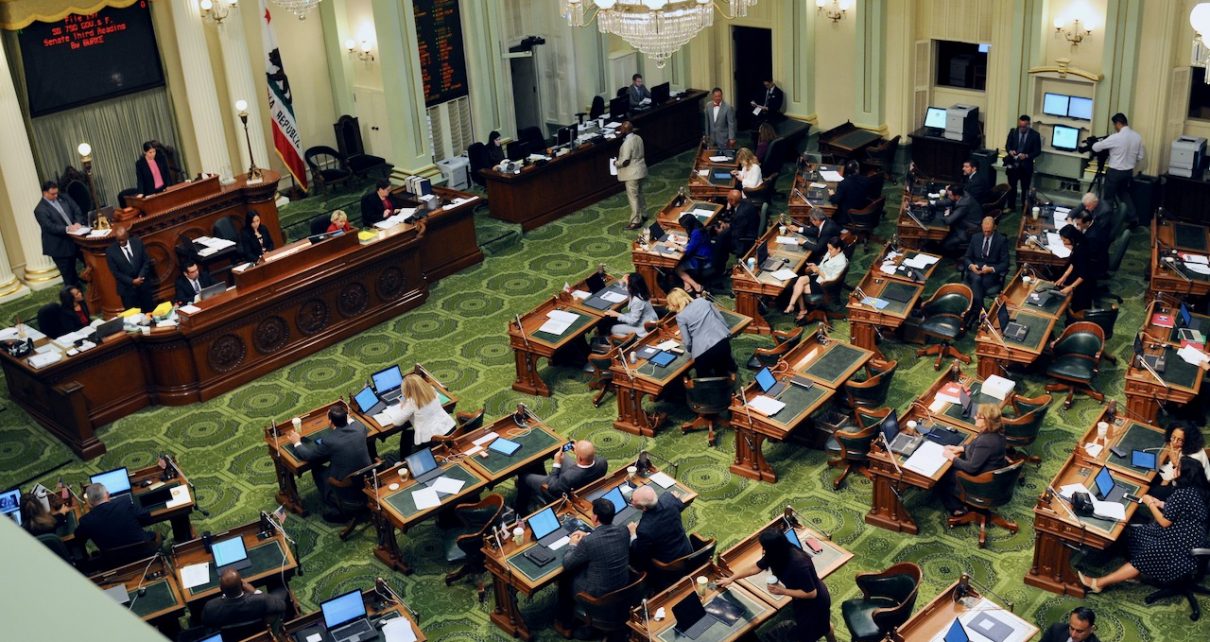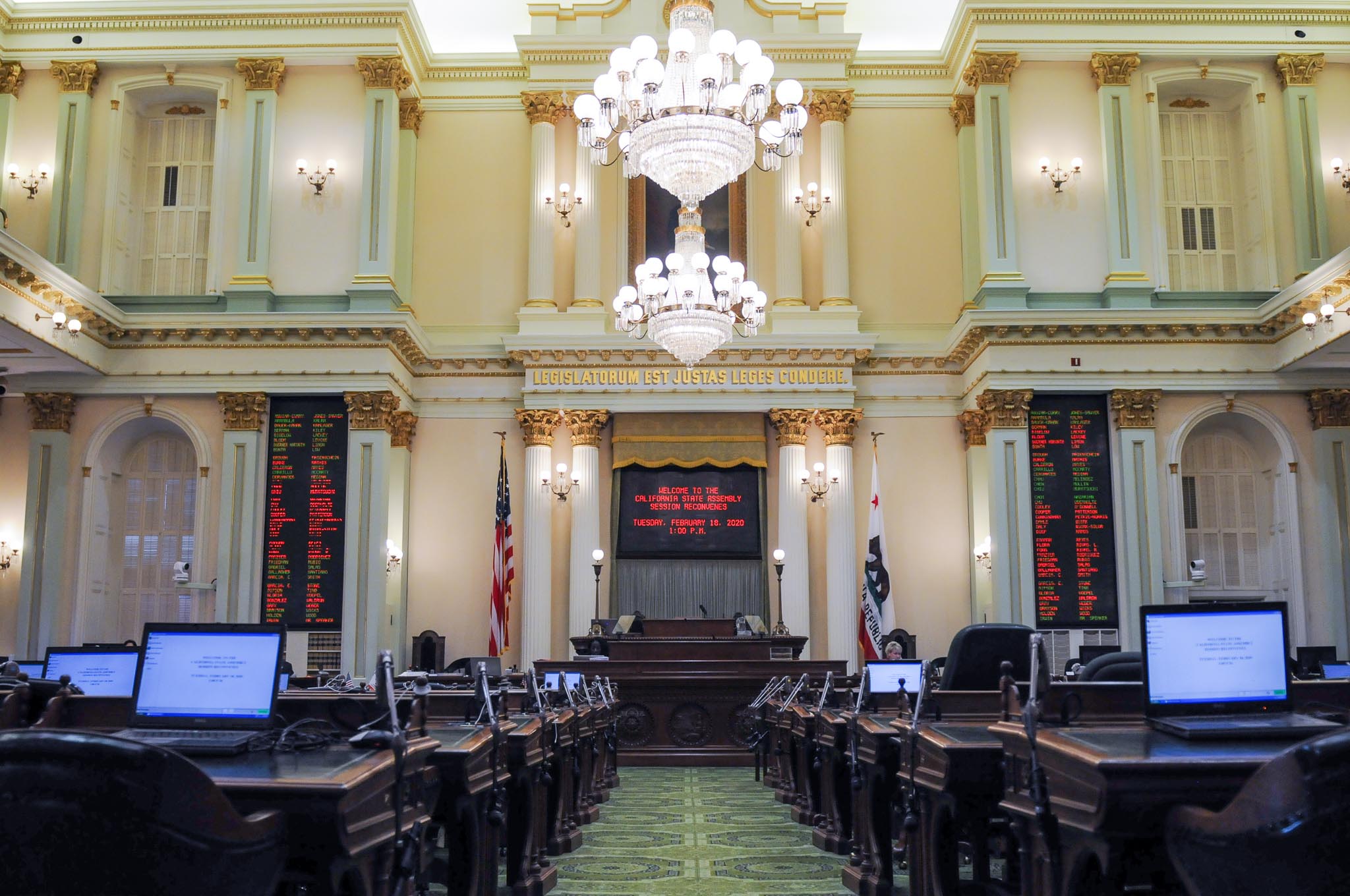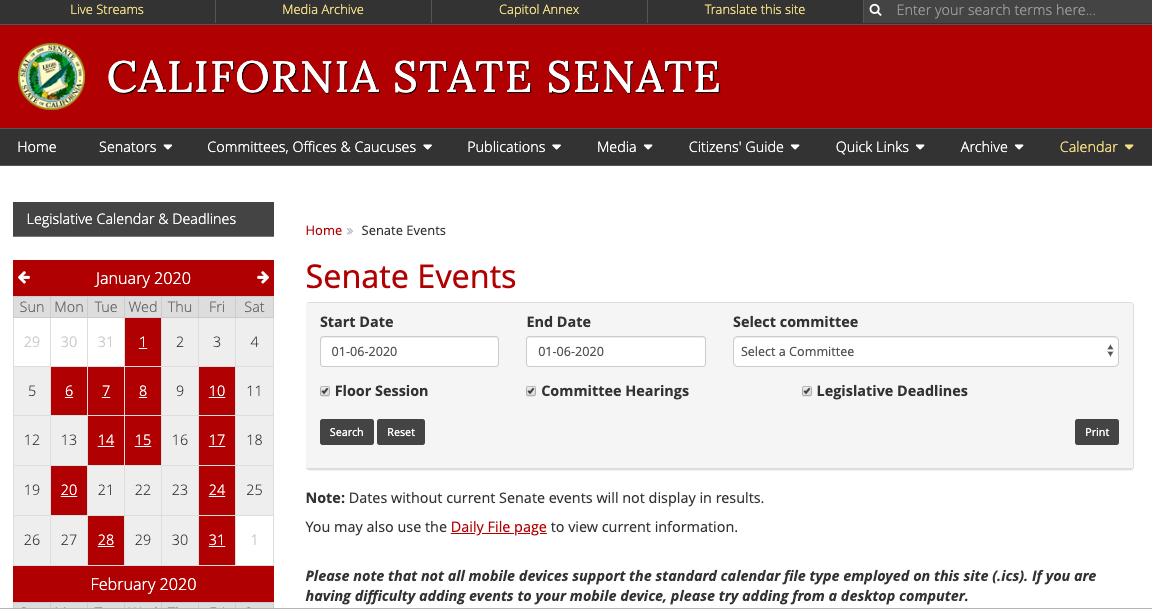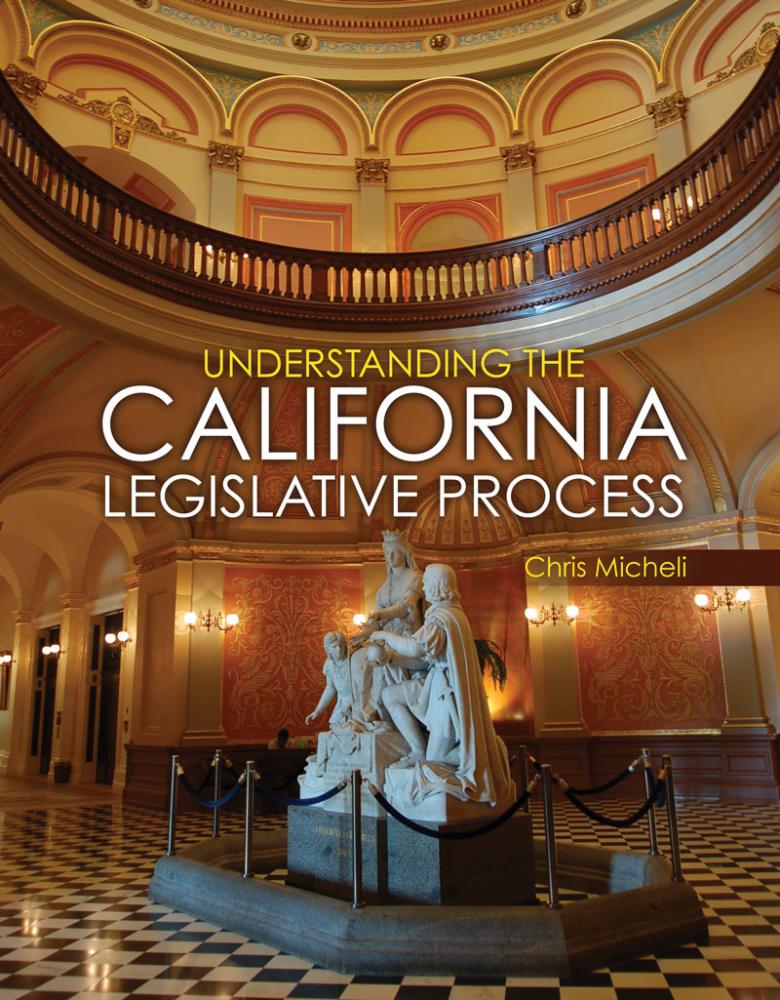
California State Assembly Chamber. (Photo: Kevin Sanders for California Globe)
Can All California Legislative Rules Be Waived?
Even some constitutional provisions can be waived
By Chris Micheli, August 2, 2022 6:25 am
Almost all legislative rules, even some in the state Constitution, can be waived by legislators. Wait – can that be right? Yes, even some constitutional provisions can be waived. Each two-year Session, the Assembly adopts its Assembly Rules, the Senate adopts its Senate Rules, and both houses adopt the Joint Rules of the Assembly and Senate.
As a general rule, all of the Joint, Assembly, and Senate Rules can be waived with either a majority vote or a two-thirds vote. Those waiver requirements are specified in the respective Rules. But even some state constitutional rules can be waived by a legislative vote.
As a practical matter, the only two rules that the public and lobbyists should view with certainty during the month of August are the 72-hour in print rule and the August 31 adjournment date. But even those are not “ironclad.” Why is that?
While every other procedural rule can ultimately be waived with the requisite vote, those two constitutional rules have a pretty narrow exception to each. Some legislative process rules — such as a policy committee hearing in the house of origin after substantive amendments were adopted in the second house – may no longer be “sacred cows,” and may be waived, as we saw during the pandemic.
So, what are some state constitutional provisions in Article IV that can be waived?
Section 8(a) – No bill, other than the budget bill, may be heard until the 31st day after the bill was introduced. However, this constitutional provision can be waived by the house in which the bill was introduced with a three-fourths vote.
Section 8(b)(1) – No bill may be passed unless it is read by title on 3 days in each house. However, this constitutional provision can be waived by the house with a two-thirds vote.
As the reader can see, the above provisions specify two legislative process requirements contained in the California Constitution that can actually be waived by a vote of legislators.
How about the 72-hour in print rule? Here is what the state Constitution provides in Article IV:
Section 8(b)(2) – No bill may be passed or become a statute unless it has be in print for at least 72 hours before the vote. However, this constitutional provision can be waived with a written gubernatorial statement that it is necessary to address a state of emergency and each house casts a two-thirds vote.
This written statement by the Governor and waiver has occurred only once – on March 16, 2020, just prior to the Legislature shutting down for six weeks during the start of the pandemic. Prior to 2020, and in the two years since then, it has not occurred. As a result, absent a state of emergency during August, readers can expect the 72-hour in print rule to govern. But note that this rule is not absolute.
So, how about the August 31 adjournment deadline in the second year of the 2-year Legislative Session (such as in 2022). Is August 31 a hard deadline? (Yes) Or is it subject to a rule waiver? (No) Can legislators “stop the clock” just before midnight? (No) Here is what the state Constitution provides in Article IV:
Section 10(c) – No bill may be passed by either house on or after September 1 of an even-numbered year except statutes calling elections, statutes providing for tax levies or appropriations for the usual current expenses of the State, and urgency statutes, and bills passed after being vetoed by the Governor.
Hence, while it appears that August 31 is a strict deadline, there are four types of bills that can be voted upon after midnight on August 31 (i.e., after 12:01am on September 1):
- Urgency clause measures
- Tax levy measures
- Appropriations measures for usual, current state expenses
- Measures calling an election
But those four are it. In other words, every other type of bill needs to be voted upon prior to midnight on August 31. And the roll call vote must have been taken prior to midnight, as we experienced during the 2020 Legislative Session.
- Death Deeds in California - February 27, 2026
- Sources of Law - February 26, 2026
- Commercial Fishing - February 26, 2026





One thought on “Can All California Legislative Rules Be Waived?”